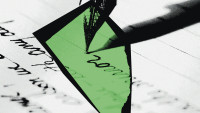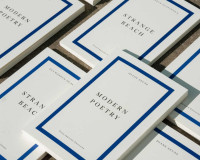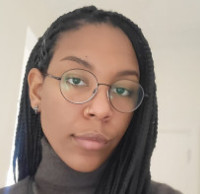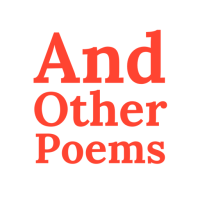Ever wondered how a book gets published?
By Helen Bolton
Assistant Editor, Avon, HarperCollins
firstwriter.com – Friday December 28, 2012

Helen Bolton, editor of the United Kingdom's No.1 bestselling ebook over this Christmas, You Had Me At Hello, offers fwn readers an insight into the publishing process at a major international publisher.
I count myself as one of the luckiest people around. I am an editor at HarperCollins Publishers, working on one of its fiction imprints, Avon. I’ve been here for the past four years, but to this day, as I walk up the steps into our office every morning, I look up at the HarperCollins sign over the door and feel a familiar buzz of excitement: the joy of being able to work on books day in, day out for a living.

When I reveal that I work in publishing, I am so often asked about how the process happens, or indeed, how someone can get their book published. As an editor, I have manuscripts submitted to me each week via literary agents. As you might imagine, with so many arriving weekly, it takes a lot for a novel to really stand out.
It’s virtually impossible to read everything that lands on my desk, so as a rule of thumb, I read the first 100 pages of a manuscript, before deciding whether it is or isn’t for us. If it looks like it has potential, I’ll then read to the end and share it with the rest of the team. So you can see just how important to get the opening of a novel just right. We read 100 pages because that’s approximately the length of time it will take to turn a reader on or off – often taking even less time than that.
For a book to make an impression, it’s all about the elevator pitch. We look for a strong concept that drives the book – one that we can pitch in a single soundbite. As soon as You Had Me At Hello landed on my desk, I knew I was onto a winner. Immediately, the tagline "what happens when the one that got away comes back?" came to mind, and this has stuck with the book ever since. As a tagline, it’s simple, to the point, and you immediately know what’s at the very heart of the novel. Remember this, because however brilliant your novel may be, if a reader doesn’t understand what it’s about then your book will be left languishing on the shelf.
Of course, for a book to have potential I need to love it. After all, by the time the editing process is over I might have read the book up to eight times. It also needs to make sound commercial sense. The book industry is an increasingly tough nut to crack, so I am on the lookout for novels that give the market what they want – whether they follow a trend we’re currently seeing, or whether they bring a new twist to an old favourite.
It also has to fit the list that I work on. One of the most frustrating things for me as an editor is finding a book that I love, and then not being able to take it on. This may be because it’s not the sort of book we take on at Avon, or perhaps because it’s not something that’s working in the market at the present moment. But don’t be disheartened if you ever get this sort of feedback from an editor – your time will come.
Of course, all of this is important because at the end of the day, I’m not the one who makes the final decision to take on an author or not; that lies with the people who hold the purse strings. So I have to pitch the book and author to them. It’s at this point that I’ll get a real grilling: what’s so great about the book? Why do I think it will work? Who are its main competitors in the market? What vision do I have for the book – for the author, for the artwork and for the following books? And so on. It’s quite an interview.
But it makes it all worthwhile once I finally get my hands on the book and start to work. It’s then that I will work alongside an author to make the novel the best it can possibly be. Over the course of a year we work closely to get it into the best possible shape, giving it a title, cover, shoutline, blurb, and everything else that’s key to turning it from a manuscript into a book.
It’s a long process, and there’s no time that’s more nerve-wracking than when you’re waiting for those first sales figures to come in. But after all that it’s an unbelievable feeling when it all pays off – as has happened only this week with You Had Me At Hello. It’s just been announced that it’s the Christmas number 1 ebook in the United Kingdom, and both myself and the author Mhairi couldn’t have hoped for better news to end 2012. This is exactly what I dream of the day that I first see a manuscript, and know that something quite incredible has just landed on my desk.





 How I got my book published - An interview with author, Stephen Nuttall
How I got my book published - An interview with author, Stephen Nuttall How I got my book published - An interview with author, Marion Grace Woolley
How I got my book published - An interview with author, Marion Grace Woolley How I got my book published - An interview with author, James J. Garber
How I got my book published - An interview with author, James J. Garber How to write a book: 11 tips on creating a bestseller from published authors
How to write a book: 11 tips on creating a bestseller from published authors The sure-fire way to getting your book published, according to one of UK’s top literary agents
The sure-fire way to getting your book published, according to one of UK’s top literary agents Best Practices for Selling Your Book to Agents and Editors (or How to Avoid Being Delusional About Getting Published)
Best Practices for Selling Your Book to Agents and Editors (or How to Avoid Being Delusional About Getting Published) 10 tips on how to get your first book published
10 tips on how to get your first book published At the start of this year, I could barely sell my writing. These 10 online classes, books, and podcasts helped me get published in The New York Times and land 2 literary agents.
At the start of this year, I could barely sell my writing. These 10 online classes, books, and podcasts helped me get published in The New York Times and land 2 literary agents. Between the novel and the book
Between the novel and the book Bulletproof book proposals: three solutions you can implement right now
Bulletproof book proposals: three solutions you can implement right now How I got published - An interview with author, Kent Richardson
How I got published - An interview with author, Kent Richardson Beginning your book's publicity plan
Beginning your book's publicity plan From writer to published author in 7 simple steps
From writer to published author in 7 simple steps Book proposal writing made easy
Book proposal writing made easy New Literary Agent Listing: Gabrielle Demblon
New Literary Agent Listing: Gabrielle Demblon Reading Force is delighted to welcome submissions from adults, children and young people to its 2025 Memoir Writing Competition
Reading Force is delighted to welcome submissions from adults, children and young people to its 2025 Memoir Writing Competition New Publisher Listing: Cicada
New Publisher Listing: Cicada Calling all aspiring authors! Here's your chance to win a one-to-one session with a literary agent - plus £1,500
Calling all aspiring authors! Here's your chance to win a one-to-one session with a literary agent - plus £1,500 New prize for translated poetry aims to tap into boom for international-language writing
New prize for translated poetry aims to tap into boom for international-language writing New Literary Agent Listing: Kaylyn Aldridge
New Literary Agent Listing: Kaylyn Aldridge TikTok parent ByteDance is shutting down its short-lived book publisher
TikTok parent ByteDance is shutting down its short-lived book publisher New Magazine Listing: And Other Poems
New Magazine Listing: And Other Poems New Literary Agent Listing: Helen Lane
New Literary Agent Listing: Helen Lane UK audiobook revenue up by almost a third last year
UK audiobook revenue up by almost a third last year New Publisher Listing: Radio Society of Great Britain
New Publisher Listing: Radio Society of Great Britain New Magazine Listing: Emerge Literary Journal
New Magazine Listing: Emerge Literary Journal New Literary Agency Listing: Ghosh Literary
New Literary Agency Listing: Ghosh Literary New Publisher Listing: Hardie Grant
New Publisher Listing: Hardie Grant
